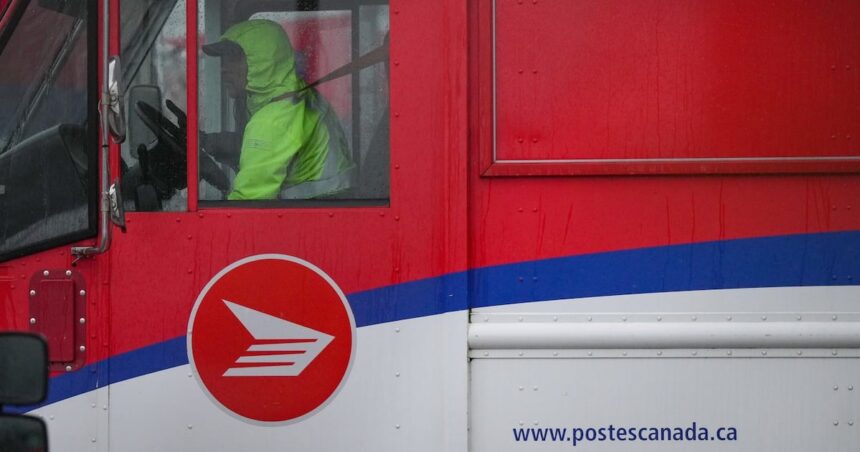The clock is ticking toward a potential nationwide mail disruption as Canada Post abruptly suspended contract negotiations with its largest union Wednesday, throwing the talks into disarray just weeks before the current agreement expires.
The Crown corporation announced it would “temporarily pause” bargaining sessions with the Canadian Union of Postal Workers (CUPW), which represents more than 55,000 postal workers across the country. This unexpected development comes as both sides face a critical May 31st deadline when the existing four-year collective agreement expires.
“We’ve reached an impasse on fundamental issues that threaten the sustainability of postal services for Canadians,” said Martin Reynolds, Canada Post’s chief negotiator, in a statement obtained by CO24. “Taking this pause allows both parties to reassess positions and hopefully return to the table with more realistic expectations.”
CUPW leadership expressed outrage at what they characterized as “negotiation theatrics” designed to pressure workers into accepting less favorable terms. “This is a calculated move to manufacture a crisis,” said Elaine Thompson, CUPW National President. “Our members deliver essential services to Canadians daily, and they deserve a contract that reflects their contribution.”
At the center of the dispute are significant differences over wages, pension reform, and the corporation’s modernization plans. Canada Post has insisted that any new agreement must address the financial realities of declining letter mail volumes, which have fallen by over 40% since 2006, according to Canada Post’s annual financial report.
Union representatives counter that the corporation’s growing parcel delivery business – which saw a 21% revenue increase during the pandemic – demonstrates financial health that should translate to better compensation for workers. The union is seeking wage increases of 5% annually over three years, while Canada Post has offered 2.3% increases, sources close to the negotiations revealed.
For many Canadians, the standoff resurrects memories of previous postal disruptions, including the 2018 rotating strikes that significantly delayed holiday package deliveries. The federal government eventually legislated postal workers back to work that year, a move that was later declared unconstitutional by the Ontario Superior Court.
Small business advocates are already expressing concern about the potential impact of service disruptions. “The timing couldn’t be worse,” said Jennifer Morris, spokesperson for the Canadian Federation of Independent Business. “Many small businesses have only recently stabilized after pandemic challenges, and they rely heavily on affordable postal services.”
The federal government, which oversees the Crown corporation, has thus far maintained a hands-off approach. Labour Minister David Chen told reporters yesterday that he expects both parties to “negotiate in good faith and reach a resolution that works for postal workers and all Canadians who depend on this essential service.”
Industry analysts note that Canada Post faces significant structural challenges beyond labor costs. “The corporation is at a crossroads,” explains Dr. Marcus Reid, a postal services analyst at the University of Toronto. “They need to complete their transformation from a traditional mail carrier to a modern logistics company, but that requires substantial investment and operational flexibility.”
Should negotiations continue to stall, Canadians could face postal service disruptions by early June. While both parties maintain they prefer a negotiated settlement, preparations for potential job action are likely underway behind the scenes.
As we approach the deadline, a critical question emerges: Will Canada’s postal service adapt to changing market realities while still providing stable, well-paying jobs, or are we witnessing the beginning of a fundamental restructuring of one of our oldest public institutions?

























